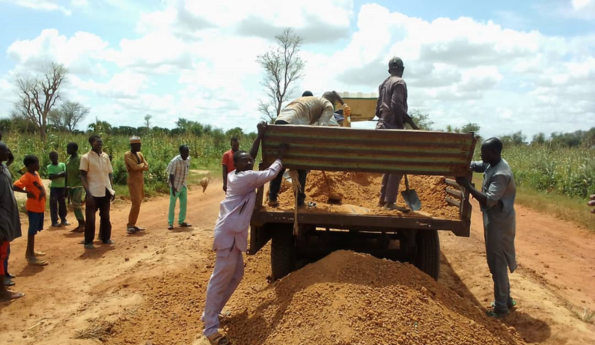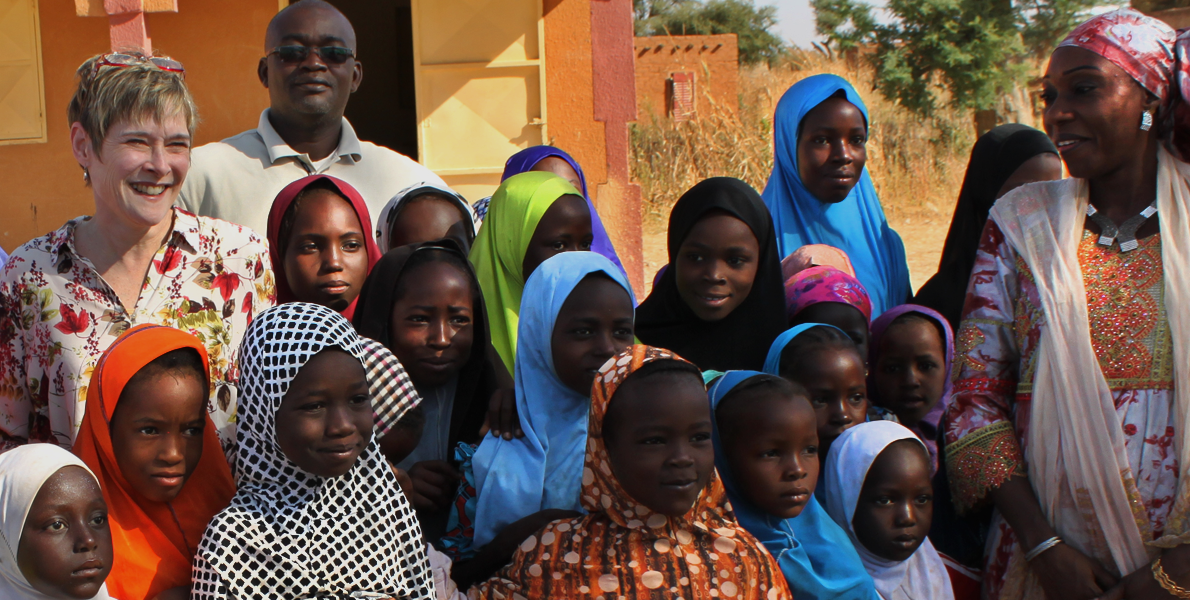Niger has an adult literacy rate of 38 percent, with an even lower rate for women. In this traditional patriarchal society, education is too often seen as unnecessary for girls and child marriage is common, with 76 percent of girls married before they turn 18. Since 2021, Counterpart has implemented the USAID Resilient Governance in Niger project, aimed at strengthening the relationship between government representatives and civil society and enhancing the ability of civil society to better identify and support the needs of girls, women, and other vulnerable populations across the Maradi, Tillabéri, Dosso, and Zinder regions. As part of this effort, Counterpart established citizen monitoring committees. These groups give community members the space to identify and address priorities to improve life within the community, and raise these issues to the attention of local decision makers.
Djarou Ousmane is a 55-year-old widow and mother of four. She runs a small business selling peanut oil and cake, and still makes time to serve as an activist in her home of Mazamni Commune. As a respected community leader, she was selected to participate in Mazamni’s citizen monitoring committee and quickly rose to the role of assistant treasurer. Counterpart provides regular trainings to ensure that the group has the strengthened capacity to identify and address local concerns effectively.
While Ousmane is passionate about supporting her community, her lack of formal education hinders her ability to fully participate in committee activities. Ousmane had an arranged marriage as a young girl and was unable to attend school or learn to read and write. As she became more interested in advocating for her community and took part in trainings, her illiteracy became a significant barrier. While she could attend and learn from capacity strengthening trainings, she was unable to write reports to share with the other members or communicate how the lessons she learned could benefit others within Mazamni.
To address this need, Counterpart created a functional literacy center in Mazamni specifically aimed at supporting local elected officials and other community leaders who lack basic literacy skills. As the assistant treasurer of the monitoring committee, Ousmane was eligible to participate. She obtained training in literacy, basic mathematics, and leadership—a critical education that she was once denied.

Djarou Ousmane reading during a functional literacy training session at the Mazamni Functional Literacy Center.
Now Ousmane takes notes during Counterpart trainings and understands how to more effectively support the operations of the commune. “It is a great source of pride for me because it is the first time I have taken part in a training course where I have understood the content and can take notes. I am very lucky. I am thankful for the functional literacy training, which allowed me to understand my role and responsibilities and strengthened my knowledge of gender leadership and social inclusion,” explains Ousmane.
Equipped to be a better leader, Ousmane is committed to sharing her newfound love of learning with others and has begun mentoring other women within her community.




